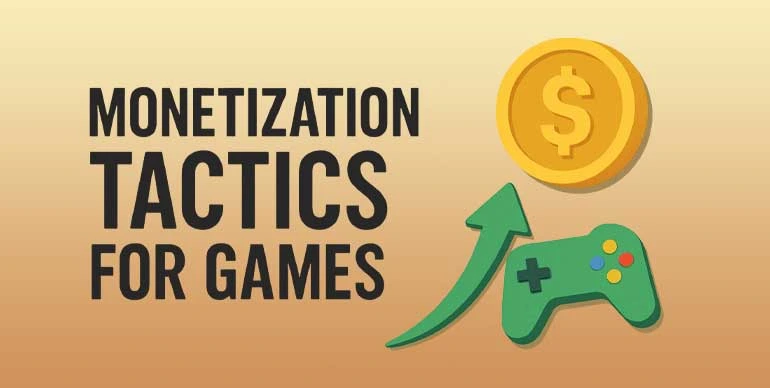Most of our clients come to us seeking technology solutions of different sorts for their game ideas. One of their major concerns is choosing a game engine for their games. Well, there are many game engines available in the market to create amazing games without coding everything to exactly meet the original vision. But, you may know that Unity and Unreal Engine are the most popular game engines world over and there is an ever-growing debate over which one of the two is the best among all. Why not? After all, both the titans come with jam packed features and both have powered several world famous game titles, such as Pokemon Go, Angry Birds Epic, Assassin’s Creed: Identity, Temple Run, etc. by Unity and Mortal Kombat X, Gears of War 3, Enslaved: Odyssey to the West, Borderlands 2, etc. by Unreal. The ease of creating video games with high-level capabilities make both the game engine juggernauts worth their salt. But when it comes to whether Unity or Unreal for your game idea, the key is to understand which suits your game requirements the best.
That said, I am going to discuss the features and capabilities of both Unity and Unreal Engine, along with factors to consider to make the best bet.
But first,
A Little Background of
Unity and Unreal Engine
Unity was introduced to the world of game app developers as a cross-platform game engine by Unity Technologies in 2005. The game engine, which has immensely evolved in six versions so far, is popularly used for 2D and 3D game development world over.
Epic Games, which was behind Unreal Tournament, debuted Unreal Engine in 1998. Unreal Engine quickly became a popular choice to build first-person shooter (FPS) games, but is now also widely used for building many different genre games like side-scrollers, MMORPGs, RPGs, etc.
I am comparing below the features and what the both game engines are capable of:
Unity |
Unreal Engine |
| 1. Learning curve is easy as uses coding frameworks C#, JavaScript and Action Script. | 1. Unreal is written in C++, which is one of the most complex languages around, thus using Unreal is not that easy as Unity is. |
| 2. Allows both 2D and 3D game development, but Unity is considered to be the best fit for creating mobile games, specially simple games like Cuphead. | 2. Unreal is known for high-quality graphics and allows you to create any kind of visual style you want in 2D and 3D. Mostly big games or AAA games have used Unreal so far for more realistic textures, lights/shadows, and effects than that of simple games. |
| 3. Supports more platforms including iOS, Android, Windows Phone 8, Tizen, Android TV, Samsung SMART TV, Xbox One, Xbox 360, Windows PC, Mac OS X,, VR platforms, SteamOS, PS4, PS Vita, WiiU, Linux, Web Player and WebGL. Unity is also most likely to be the first to provide compatibility when a new platform is launched. | 3. Popular for console cross-platform development, including Xbox One, PS4, Nintendo Switch. It also supports iOS, Android and VR platforms such as Oculus Rift, OSVR, Gear VR, Samsung Gear VR, Google VR/Daydream, and SteamVR/HTC Vive. |
| 4. Unity is a clear winner when it comes to the variety of its asset store’s features, which is a boon for small development teams. Developers can use various add-ons, props, particle and sound effects. Unity’s Asset Store also features tools for motion capture and GUI-based animation . | 4. Unreal Engine’s asset store is similar to that of Unity, but is smaller in size and lacks variety. Developers have to work out their ways to build what is desired. |
| 5. Unity offers Unity 3D for free until you start making $100K USD in annual revenue. If you wish to use more features like asset bundle creation and get rid of the standard splash screen, you will have to upgrade to paid versions Unity Plus or Unity Pro which cost $35/month and $75/month respectively. | 5. You pay nothing for using Unreal Engine to build your game and there are no different versions. The only catch is you will have to pay 5% royalties once your gross revenues from that product exceed $3,000 per quarter. |
| 6. Unity is lightweight, fast and easy with its UI. Developers can quickly import assets and render them fast. | 6. Unreal Engine requires more effort to import assets and lags behind Unity when it comes to responsiveness. |
| 7. Unity uses C# for its scripting and its scripting API supports multi-object editing for 3D games. Though coding is a bit difficult, the program points out the incorrect string of code so that you can develop what you exactly intended to. | 7. Unreal Engine’s visual scripting editor Blueprint is one of its most powerful tools. You can use it to script gameplay events and create architectural walkthroughs without even writing a single line of code. Blueprint is a great feature to quickly create a prototype. Some knowledge of C++ will be required, though, to complete serious tasks. |
| 8. Rendering is slower in Unity, and there have been scenarios where developers had to wait for two weeks to render all lighting using Unity. | 8. Unreal Engine scores higher when it comes to rendering speed. In addition to fast post processing, it also supports many features. |
| 9. Source code is shared with the community but with no modification allowed. | 9. The community gets the source code and can modify it too. |
| 10. Offers support for older devices with a decent frame rate. | 10. The support for older devices is limited with frame rates dropping to 5fps. |
| 11. Unity offers plenty of free tutorials to make learning easier, so if you’re going for beginners, Unity should be an ideal choice. Its community is also very active and supportive. | 11. Unreal Engine also has a community but can’t be put as more helpful than Unity’s. It also lacks great tutorials on game building so an experienced developers is perhaps the key here. |
Unity or Unreal Engine:
Which is the Best for Your Game Idea?
Based on the features and capabilities of the two game engine powerhouses, the decision comes down to answering four major questions.
What type of game do you want to build?
The type of game you want to build is an easy way to solve a good part of the puzzle. For example, if you’re planning to build the next Gears of War and visuals are more important for you (sometimes even more important than gameplay), Unreal Engine should ideally be your bet for next-gen physics and graphics. Blueprint does wonders for such games. But if your game is a simple puzzle game like Braid, 3D platformers, logic games, and even first-person shooter games, Unity is the best game engine to go for. We can put it as Unreal for heavy-hitting genre titles such as Enslaved: Odyssey to the West and Unity for games like Temple Run and Cuphead.
What type of device do you want to build the game for?
If your game’s target devices are mobile phones, using Unreal Engine’s high processing power is unnecessary. Unity works the best for lower-powered devices as it allows to create complex games without requiring a powerful setup as of a PC. But if you want to create an immersive and magical experience for high-end devices, Unreal is a good choice but that is also subject to if you can’t do that with Unity. The key here is if you’re looking at your game as a visual artist or as a game developer because the former would more likely go for Unreal and the latter for Unity.
What’s Your Team Size?
If your team size is small, you will be very unlikely to finish a quality game on time using Unreal Engine. To make the best of Unreal Engine, you need a big team where different roles can be distributed to different individuals, like someone just working on getting the particles right and someone only doing the shaders. Unity’s Asset Store and community support makes it way easier for smaller teams to build fast without compromising on what was actually desired. The beauty of Unity game development services is that smaller teams can also create an effective experience by building AR and VR for their games. Triple A studios with bigger teams usually use Unreal Engine for better horsepower for development and more polishing,
What’s your budget?
If it’s the first time you’re building a game, you have a limited budget and can only afford a small team, go for Unity. Unity 3D is also free until you earn $100K USD in annual revenue. You only pay when you upgrade to Unity Plus or Unity Pro for things like Asset Bundle, etc. Unreal is also free to use except for the first $3,000 per quarter and then 5% royalty on gross revenues per quarter. But that price doesn’t bother much after the game hits the game charts and turns into a revenue generator machine.
I hope that this blog has answered all it takes to decide on choosing the best game engine among Unity and Unreal. But, if there's still something I missed out on in this blog, please feel free to get in touch with us, and I will be more than happy to answer that particular query of yours. Now, I would like to introduce you to Logic Simplified, an India-based game development company with more than six years of hands-on experience of building video games using both Unity and Unreal. At Logic Simplified, we shape video games ideas into a reality. It’s not just our expertise in using the power of tech, but our overall passion for games to imagine the concept and create a game design & architecture that a specific target audience craves for in a particular genre of video games. Working on a game idea from scratch is not an easy task for its own challenges, however, our expert game designers and developers are committed to help game visionaries who dare to dream and this is what we are really proud of. We also very well understand the changing requirements of modern games and level them up by leveraging the power of AR/VR, AI and IoT as well. For any query that would help you make a decision to start building the next gaming mania, please write to us at enquiry@logicsimplified.com. We will be obliged to help you with gaming solutions that we take great pride in.
 Get a Quote
Get a Quote













